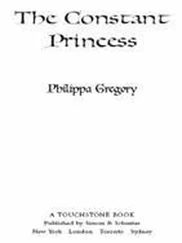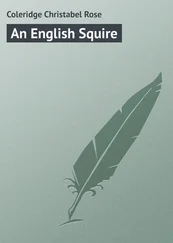Christabel Coleridge - The Constant Prince
Здесь есть возможность читать онлайн «Christabel Coleridge - The Constant Prince» — ознакомительный отрывок электронной книги совершенно бесплатно, а после прочтения отрывка купить полную версию. В некоторых случаях можно слушать аудио, скачать через торрент в формате fb2 и присутствует краткое содержание. Жанр: foreign_prose, на английском языке. Описание произведения, (предисловие) а так же отзывы посетителей доступны на портале библиотеки ЛибКат.
- Название:The Constant Prince
- Автор:
- Жанр:
- Год:неизвестен
- ISBN:нет данных
- Рейтинг книги:4 / 5. Голосов: 1
-
Избранное:Добавить в избранное
- Отзывы:
-
Ваша оценка:
- 80
- 1
- 2
- 3
- 4
- 5
The Constant Prince: краткое содержание, описание и аннотация
Предлагаем к чтению аннотацию, описание, краткое содержание или предисловие (зависит от того, что написал сам автор книги «The Constant Prince»). Если вы не нашли необходимую информацию о книге — напишите в комментариях, мы постараемся отыскать её.
The Constant Prince — читать онлайн ознакомительный отрывок
Ниже представлен текст книги, разбитый по страницам. Система сохранения места последней прочитанной страницы, позволяет с удобством читать онлайн бесплатно книгу «The Constant Prince», без необходимости каждый раз заново искать на чём Вы остановились. Поставьте закладку, и сможете в любой момент перейти на страницу, на которой закончили чтение.
Интервал:
Закладка:
Coleridge Christabel R. Christabel Rose
The Constant Prince
Preface
It is commonly supposed that the writer of an historical tale idealises the characters therein represented, heightens the romance of the situation, and at any rate brings the fairer tints of the scene into undue prominence. I wish to make it clearly understood that I have not done so in this instance. The high cultivation, the mutual affection, the deep piety, all the peculiar characteristics of the Princes of Avis, are matters of history, and I have only found it impossible to do justice to them. The personal appearance of the three eldest, and the special line taken by all of them with regard to the cession of Ceuta, indeed the whole tragical story, I found ready to hand, the only imaginary incidents being the meeting of Enrique and Fernando at Arzella, and the presence of the two boy princes at the siege of Ceuta.
There is a life of the Constant Prince which was written by the priest to whom I have given the name of Father José, which I regret much not having been able to obtain, though the outline of the story of his imprisonment is, I believe, taken from it.
The details of the Treaty of Tangier are very obscure; but it appears that the Moorish king of Granada considered his African brethren as guilty of a breach of faith in detaining Fernando.
The English characters are of course wholly fictitious.
Lastly, Calderon in his play, “Il Principe Costante,” and Archbishop Trench, in his beautiful poem of the “Steadfast Prince,” represent Fernando as refusing to be ransomed by the cession of Ceuta. This refusal he had neither the power nor the right to make. His real nobleness lay in his willing acceptance of the suffering brought on him by the decision of others.
C.R. Coleridge. Hanwell Rectory, — December 2, 1878.Chapter One
Foreshadowings
“The child is father of the man.”
In a small marble-paved court belonging to the newly-built palace of King Joao the First of Portugal, on a splendid summer day in the year 1415, five youths were engaged in earnest consultation. The summer air, the luscious scent of the orange-trees beneath which they were seated, might have inclined them to mere lazy enjoyment of their young existence – the busy sounds from the tilt-yard near have summoned them to the sports and exercises for which their graceful, well-grown strength evidently fitted them, or the books, several of which were scattered on the marble steps of the court, have employed their attention. But they were evidently so deeply interested by the subject in hand as to have no thoughts to spare for anything else – a fact the more remarkable as they were not engaged in a dispute, but were discussing something on which they were evidently all agreed, and which they regarded as of the highest importance.
“When our great uncle, Edward the Black Prince, won his spurs,” said the eldest, a tall, dark-haired young man, with a singularly considerate and intelligent countenance, “it was at Crecy by hard fighting. He did something to deserve knighthood. His father let him win the field for himself. ‘Is my son unhorsed,’ he said, ‘or mortally wounded? Nay, then let him win his spurs.’ And see how he won them!”
“And he was only sixteen!” said the second brother, who resembled the first speaker, but had a more fiery and vivacious expression.
“Ay, Pedro, we have waited too long for our chance; it suits not with our honour.”
“Oh,” broke in the fourth boy vehemently, “why cannot the King find some pretext for war? If Castile or Arragon would but insult us! But my father says he cannot engage in an unjust war merely to knight his sons. ’Tis very unlucky.”
“Nay,” said the eldest brother, “I cannot blame him. He must consider the country’s good.”
“Ah!” said Pedro, “there always were wars and deeds of arms in those good old days. But these are dull times; it is not worth while living in the world now. Everything is for policy and justice; no one acts for pure glory and knight-errantry.”
“That is a stupid thing to say,” said the third brother, who had not hitherto spoken, a youth with broad, thoughtful brows and large grey eyes. “We do not know what one half of the world is like; there is quite enough to do in finding out.”
“Enrique is for ever wondering about countries beyond seas,” said Pedro. “Are Duarte and he and I to seek knighthood by sailing away to look for savages – the saints know where?”
“We have not yet killed nearly all the infidels,” said the youngest brother of all, rather dreamily.
“There are no Crusades now, Fernando,” said Duarte; “and to my thinking absent sovereigns make ill-governed kingdoms.”
“And are there no Infidels except in Palestine?” cried the little Fernando, springing to his feet. “I would sooner earn my knighthood by destroying the villains who steal children and imprison noble knights than by fighting with brave gentlemen like ourselves. I would sooner be Godfrey de Bouillon than our uncle Edward. Let us go and take Tangiers or Ceuta at the sword’s point; then can we be knighted with honour, and the blessed Cross – ” Here the child’s excitement fairly overcame him, tears filled his eyes, and he hid his face behind Enrique.
“There is much in the child’s words,” said Duarte. “Weep not, Fernando, if I go to fight the infidel, thou shalt be my page. Come, Pedro and Enrique, walk this way with me.” And the three elders strolled away together, leaving their juniors to speculate on their subject of conversation.
These five brothers, afterwards perhaps among the most brilliant, and certainly among the most virtuous, princes who ever adorned a royal house, were the sons of Joao the First of Portugal, the founder of the house of Avis, so called from the order of knighthood of which he was grand-master. He succeeded to the throne of Portugal rather by election than by inheritance, and after a period of disturbance and trouble; but his great qualities raised the little kingdom to quite a new place among nations, and in Philippa of Lancaster, the daughter of John of Gaunt by his first wife, he met with a Queen fully worthy of him. The interest which John of Gaunt’s second marriage gave him in the affairs of Castile made an alliance in the Peninsula desirable to him; but Philippa was free from the distracting claims to the Castilian succession of her young half-sister Catherine, and involved her husband in no quarrels. It may well be a source of pride to the English reader to remember that her sons were of Plantagenet blood, for they inherited all the virtues and few of the faults of that noble and generous race.
Perhaps the profound peace which made it so difficult to these young princes to signalise their knighthood by any deed of arms worthy of their name may seem more to King Joao’s credit in modern eyes than in those of his sons; but it was not strange that young men, all with talents and aims far above the average in any age, rank, or country, should wish to make a reality of that which was perhaps on the verge of becoming a splendid form, and burning with the truest spirit of chivalry, should, as many have done since, sigh for times when it was easier to express it. They were all as highly educated as was possible to the times in which they lived, and Edward, or Duarte, as he was called by the Portuguese form of his English name, was a considerable scholar; but war was still the calling of a prince and a gentleman, and they felt hardly used in being debarred from it. King Joao, however, was of so enlightened or so degenerate a spirit that he refused to plunge his kingdom into war solely for the purpose of knighting his sons. Hence the foregoing discussion.
Читать дальшеИнтервал:
Закладка:
Похожие книги на «The Constant Prince»
Представляем Вашему вниманию похожие книги на «The Constant Prince» списком для выбора. Мы отобрали схожую по названию и смыслу литературу в надежде предоставить читателям больше вариантов отыскать новые, интересные, ещё непрочитанные произведения.
Обсуждение, отзывы о книге «The Constant Prince» и просто собственные мнения читателей. Оставьте ваши комментарии, напишите, что Вы думаете о произведении, его смысле или главных героях. Укажите что конкретно понравилось, а что нет, и почему Вы так считаете.












